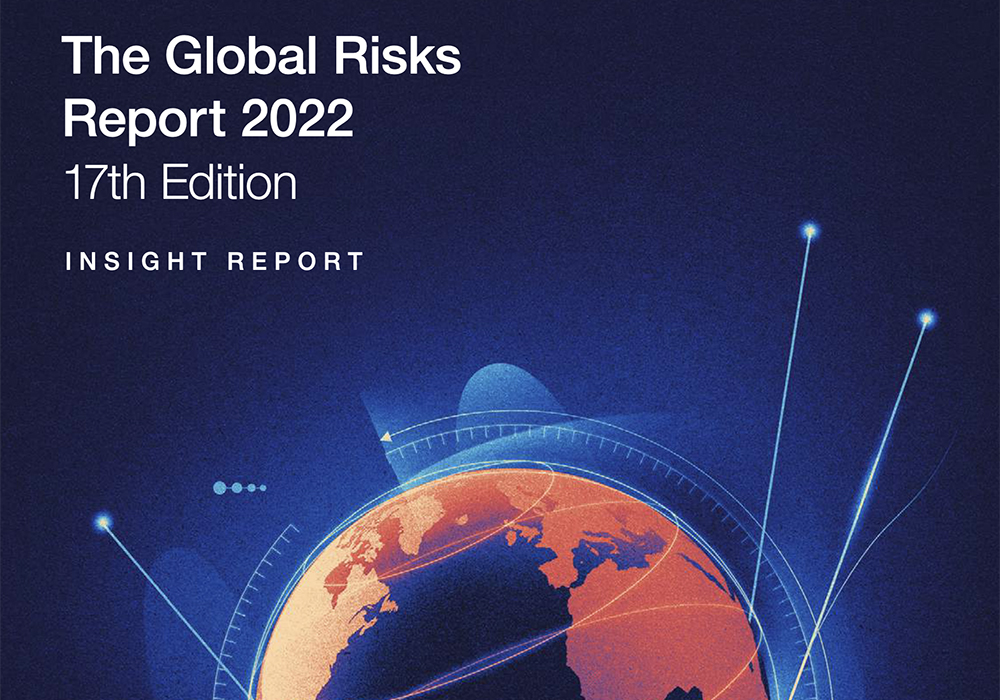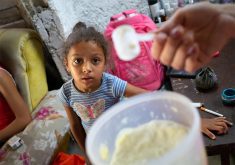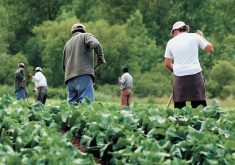Dangerous divergence seen between ability of wealthy nations to keep their populations safe and that of poorer countries
A lot of problems await the world once the pandemic recedes, the World Economic Forum says.
The extreme stress of current and nearby problems is undermining the ability of governments around the world to address critical long-term issues.
“The economic impacts of the pandemic, including (stressed) supply chains, rising commodity pricing, inflation and especially increased levels of public debt and central banks that can hardly become more interventionist, make it even more challenging for nations to start implementing transition policies that will have material impacts on their economies and citizens,” said Peter Giger, chief risk officer for Swiss insurance giant Zurich, in an introduction to the World Economic Forum’s 2022 Global Risks Report.
Read Also

Pakistan reopens its doors to Canadian canola
Pakistan reopens its doors to Canadian canola after a three-year hiatus.
The WEF, an organization bringing together much of the world’s leading economic thinkers and players from corporate and government leaders to economists and philanthropists, sees a dangerous mixture of extreme pressures hitting both developed and underdeveloped countries, and hitting the developed and underdeveloped differently.
“There is a tension here that has to be managed,” said Saadia Zahidi, one of the report’s authors.
“How do we restore access to education? How do we give people better access to health care? How do we ensure that people have adequate access to heating and electricity?”
The WEF sees a dangerous divergence between the ability of wealthy nations to keep their populations safe and potentially able to bounce back from the pandemic, and that of poorer nations, which have had bigger challenges in affording the safety net spending, vaccine administration and economic stabilizers.
The WEF pegs untraditional problems such as “social cohesion erosion,” “livelihood crises” and “backlash against science” at the top of its risks, along with more traditional but still pandemic-related problems of debt crises, cybersecurity dangers, and digital access inequality. It sees the damage from the pandemic causing long-lasting harm to many nations’ populations.
“This societal scarring compounds the challenges of national policy-making, limiting the political capital, focus from leaders, and public support needed to strengthen international co-operation on global challenges,” says the report.
The WEF also sees “extreme weather” continuing to be a short-term challenge, but also fears that the pandemic’s costs and damage will hinder the world’s governments from addressing climate change and will result in “climate action failure.”
It fears that a short-term inability to act on the commitments from COP26 and other agreements will exacerbate the climate change crisis, causing greater long-term damage to the world’s peoples and economies.
“Will the world be able, in a synchronized way, to implement all the necessary measures to reach a 1.5-degree target in the coming decades?” pondered the WEF’s Adrian Monck.
That appeared difficult before the pandemic, but today with so much focus on combatting the physical and economic damage of COVID-19, trying to get countries to undertake the costly and painful transition from fossil fuels to renewables will be daunting.
A longer-term challenge seldom noted, Giger said, is the declining population in many nations, especially Europe. With resistance to immigration in many countries, paying for expensive social supports will become a long-term issue.
“Strategically, I think the shrinking population is one of the things not discussed enough,” said Giger.
Economic stagnation is the biggest challenge coming out of the pandemic, the WEF said, with governments having spent huge sums to keep their economies going. There is a risk of poorer countries falling even further behind wealthier ones in crucial technologies and education.
Zahidi said developed nations need to realize they will be affected by the situation in poorer nations, and they should try to find a way for the world to stay together in a post-pandemic world.
“It’s going to take political will. It’s going to take public-private collaboration. It’s going to take looking at technology and science and ensuring that we use it. But it is very possible, and we’ve seen that with the development of vaccines.”
















